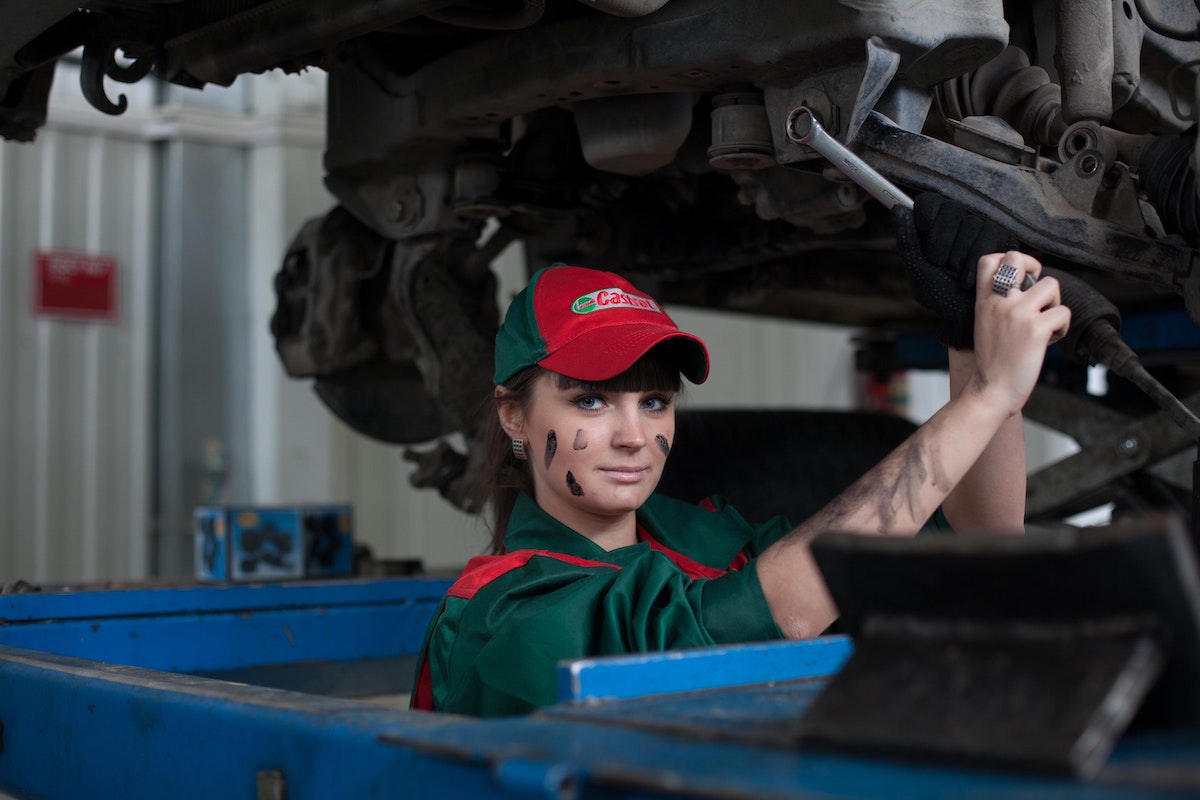
You might be surprised to learn that the classic car sector is a major contributor to the UK economy. Today, it’s worth around £18 billion and employs more than 110,000 people from mechanics and bodywork specialists to paint and finish artists and parts sourcing experts.
In the UK, there are no specific qualifications required to become a car mechanic, including for classic cars, but many employers prefer candidates who have completed relevant training and have some experience in the field.
When people come to us and ask what training they need to start working in the classic car restoration industry, we always start with learning the basics. While modern cars have become more like rolling computers, they still share the same basic components as older cars. If you’re a complete novice, therefore, the best place to begin is with a general qualification whether you want to be a mechanic, paint and finish expert or something else.
For example, formal general qualifications for a car mechanic may include:
Car bodywork and paint and finish specialists typically require formal training and qualifications to gain employment in the field. Here are some of the most common qualifications and training courses for these types of jobs:
There are also several courses available for auto electricians in the UK. This is an interesting one as far as training goes, however, because older cars have electrical systems that have since been overtaken by highly sophisticated modern technology. These courses, however, do provide a basic grounding that is vital for anyone working on the electrical systems of vintage vehicles. That’s mainly because, even outside the classic car sector, most mechanics and auto electricians still work on older vehicles.
Most people who go on to work with classic cars will have undertaken some formal training such as this. It’s important to make sure you have the basics. Many garages that deal with classic car renovations also handle modern vehicles as well so being up to date with all the latest technology and methods is critical, especially for roles such as auto electricians.
Apprenticeships are a great way to gain practical, on-the-job training while studying for a relevant qualification. Many people progress to becoming a classic car mechanic, bodywork or paint and finish specialist by being taken on and trained by a garage.
If you are looking to train and work on classic cars and you are fresh out of school then it’s worth contacting your local garage to find out if they are taking apprentices on at the moment.
There are some beginner and higher-level classic car restoration courses available around the UK and they can be useful for those who want to be employed in the sector as well as those whose hobby it is restoring vintage vehicles.
Some are run by colleges; others are organised by companies and car clubs.
Here are some that are currently available:
There are several small half-day and whole-day courses in car restoration to be found around the UK if you look hard enough. The Heritage Skills Academy, for example, run a 3 day-intensive course that covers areas like fabrication and spot welding. These are normally advertised on Event Brite.
There are also some short online courses available that cover aspects of classic car restoration which could be a good option for hobbyists and enthusiasts. Skillshack, for instance, has an hour-and-a-half long online course for basic maintenance for classic cars as well as ones that cover aspects such as body repairs and classic car electrics.
These are all pay-per-view, of course, and you need to weigh up the cost of downloading the online course and the value that it might bring.
At White’s Bodyworks, we believe that good training goes hand in hand with a great experience. It’s important to get the right basis for your education as a mechanic or bodywork specialist and most local towns with a college will have a full complement of courses available.
Unfortunately, training courses for classic car restorations are thin on the ground in the UK which is a surprise when you consider how much the industry contributes to the economy. Most people who go into classic car renovation do so with the standard qualifications and then learn through experience how their skills can be applied to older vehicles.
At White’s Bodyworks, we’ve spent a lot of time not only encouraging our staff to get the right skills and gain experience but think it’s vital if the sector is to survive. One thing that does make a difference, we’ve found, is passion. You can have all the training and go to all the courses in the world but you still have to really love everything about vintage vehicles and how to restore them.
If you’ve got an interest in working on classic cars professionally, we’re always happy to give advice. Check out our website for more about what we do.